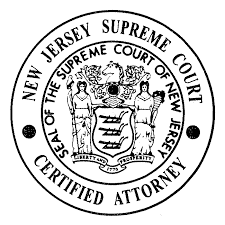If you or a family member have been a victim of an injury resulting from an accident or the negligence of another person or entity – you may be entitled to compensation. In order to assess your potential claim, you will need to consult with personal injury attorney – and how do you know where to begin.
Relatives and friends may offer you recommendations of attorneys they’ve used in the past. You may also be inundated with letters and brochures from injury lawyers who obtained your accident report and used that information to solicit you for your case. Attorneys all offer “aggressive” and “experienced” representation.
A difficult task when selecting a lawyer for your NJ personal injury case can be whittling down the large number of attorneys competing for your case. Most attorneys will offer a free consultation to get you in the door. It is difficult to pick up the phone to make the call, and sometimes even more intimidating to walk through the door at an attorney’s office to discuss your situation. Once you are face to face with an attorney to discuss your case, there are some pressing questions you need answered right off the bat. This free report can help you get the information you need to assist you when hiring a NJ personal injury lawyer.
What Does it Mean to be Aggressive?
Any attorney can say “I fight for you” or “I fight for your case.” But what does that actually mean? The true definition of an “aggressive attorney” is someone who actively pursues your case and your best interests. An aggressive attorney has committed to thoroughly represent your NJ personal injury case. Your attorney also needs to be aggressive in communicating with you about the progress of your claim. You should receive regular updates about the status of your claim and your attorney should not let your case languish. A sure sign your attorney is not aggressive is if he is not communicating with you about your case. If he is not communicating with you, then there are not updates in your matter. If there are no updates, he is likely not doing any work on your case.
Insurance companies constantly want updates about your claim, about your medical bills, about your treatment. If your attorney is not communicating with you, he is likely not responding to the insurance companies in a timely matter. Once a lawsuit is filed, there is constant discovery, depositions, medical examinations and reports. Your attorney must also keep you updated during every step of your personal injury lawsuit as well.
Being “aggressive” means your attorney keeps you informed about the status of your case, and means is available to discuss your case and answer your questions both on the phone and at the office.
What are their credentials?
 Is your attorney a certified trial attorney, and what does that mean? The New Jersey Supreme Court awarded this designation to lawyers who have demonstrated sufficient levels of experience, education, knowledge and skill in litigation and trial practice. The New Jersey Supreme Court, and the Board on Attorney Certification, designates as certified trial attorneys, only those lawyers who apply for certification, pass a vigorous board examination and who are able to meet the standards set by the Board and approved by the court. A New Jersey attorney that has been certified by the Supreme Court as a Certified Trial Attorney is a member in good standing of the New Jersey bar for at least 5 years, been favorably evaluated by judges and other attorneys, fulfilled ongoing continuing legal education requirements, passed a written examination covering various aspects of trial practice, and demonstrated a significant level of trial experience in handling litigated matters, including numerous jury trials.
Is your attorney a certified trial attorney, and what does that mean? The New Jersey Supreme Court awarded this designation to lawyers who have demonstrated sufficient levels of experience, education, knowledge and skill in litigation and trial practice. The New Jersey Supreme Court, and the Board on Attorney Certification, designates as certified trial attorneys, only those lawyers who apply for certification, pass a vigorous board examination and who are able to meet the standards set by the Board and approved by the court. A New Jersey attorney that has been certified by the Supreme Court as a Certified Trial Attorney is a member in good standing of the New Jersey bar for at least 5 years, been favorably evaluated by judges and other attorneys, fulfilled ongoing continuing legal education requirements, passed a written examination covering various aspects of trial practice, and demonstrated a significant level of trial experience in handling litigated matters, including numerous jury trials.
Only 2% of the 75,000 registered NJ lawyers meet the stringent standards of experience, education and knowledge, to be recognized and achieve board certification by the Supreme Court of New Jersey.
How do they approach injury cases?
Every attorney develops their own “playbook” of ways to handle a typical case. Find out what your prospective lawyer’s approach is in the courtroom or at the negotiating table – as well as how he interacts with his clients. Does the lawyer in question prefer to take injury cases to court in the hope of winning higher damages, or does she specialize in leveraging advantageous settlements for clients without going to trial? When a decision needs to be made about your case, will the attorney explain to you the facts and present you with choices for how to proceed, or will he make a recommendation and expect you to go along with it?
What are four things you should ask an attorney before you sign anything?
All lawyers and law firms do business differently. All attorneys handle cases in their own way. You should hire an attorney who will represent you in a way that makes you most comfortable. In order to decide, you must ask the following three critical questions:
- Who will be working on your case and appearing in court for you?
- How often will you receive updates on the progress of your claim?
- How much information will these reports contain?
- If you have questions or concerns, how soon should you expect a reply?
How would they evaluate your NJ personal injury case?
As the client, you should have reasonable expectations about the outcome of your claim from the beginning. Your attorney should be able to provide a realistic outcome for your matter and should not exaggerate the value of your case just to convince you to hire his office. Your attorney should be upfront with you, and be able to assess who long your case may take, how much your potential award may be, and any potential problems or weaknesses with your case. You should know right from the start if there are any pitfalls that can negatively impact your claim. This is part of your attorney being “aggressive.” The more you know about your case, the more you know about hiring the right attorney for your NJ personal injury claim.
Do Your Homework
How can you quietly double-check the reputation of an attorney you’re thinking of hiring (without him or her even knowing it’s happening)? Thanks to the internet, attorneys are easily searchable on the web. You can google any attorney and immediately see if they’re website and google reviews. There are many other free attorney review websites, such as Yelp, Avvo, Martindale, Lawyers.com, and Findlaw.com. Also, many attorneys post their reviews and testimonials right on their website.
Remember to make notes and ask for reviews after the meeting. Make your choice based on who you are the most comfortable with.







